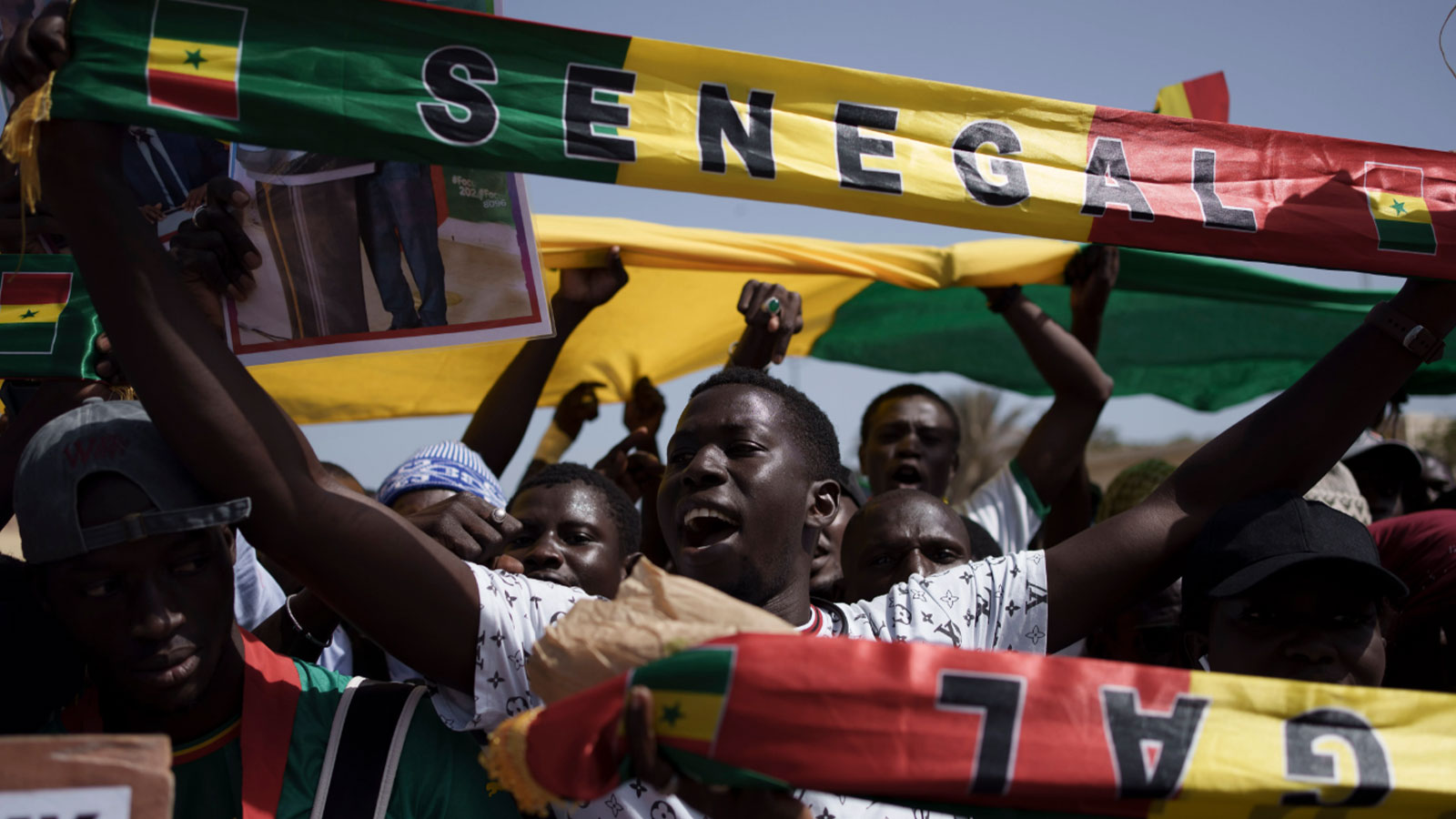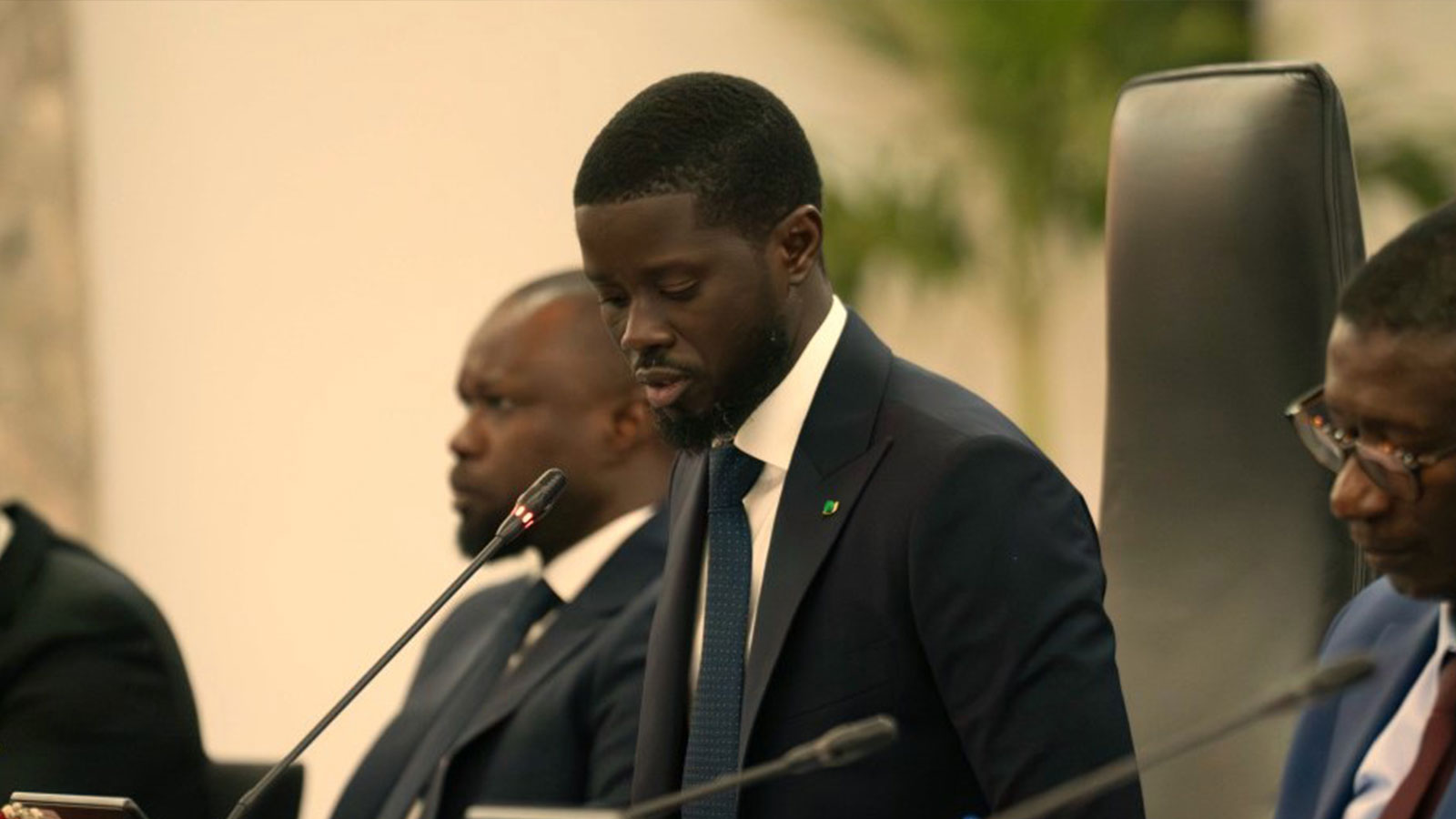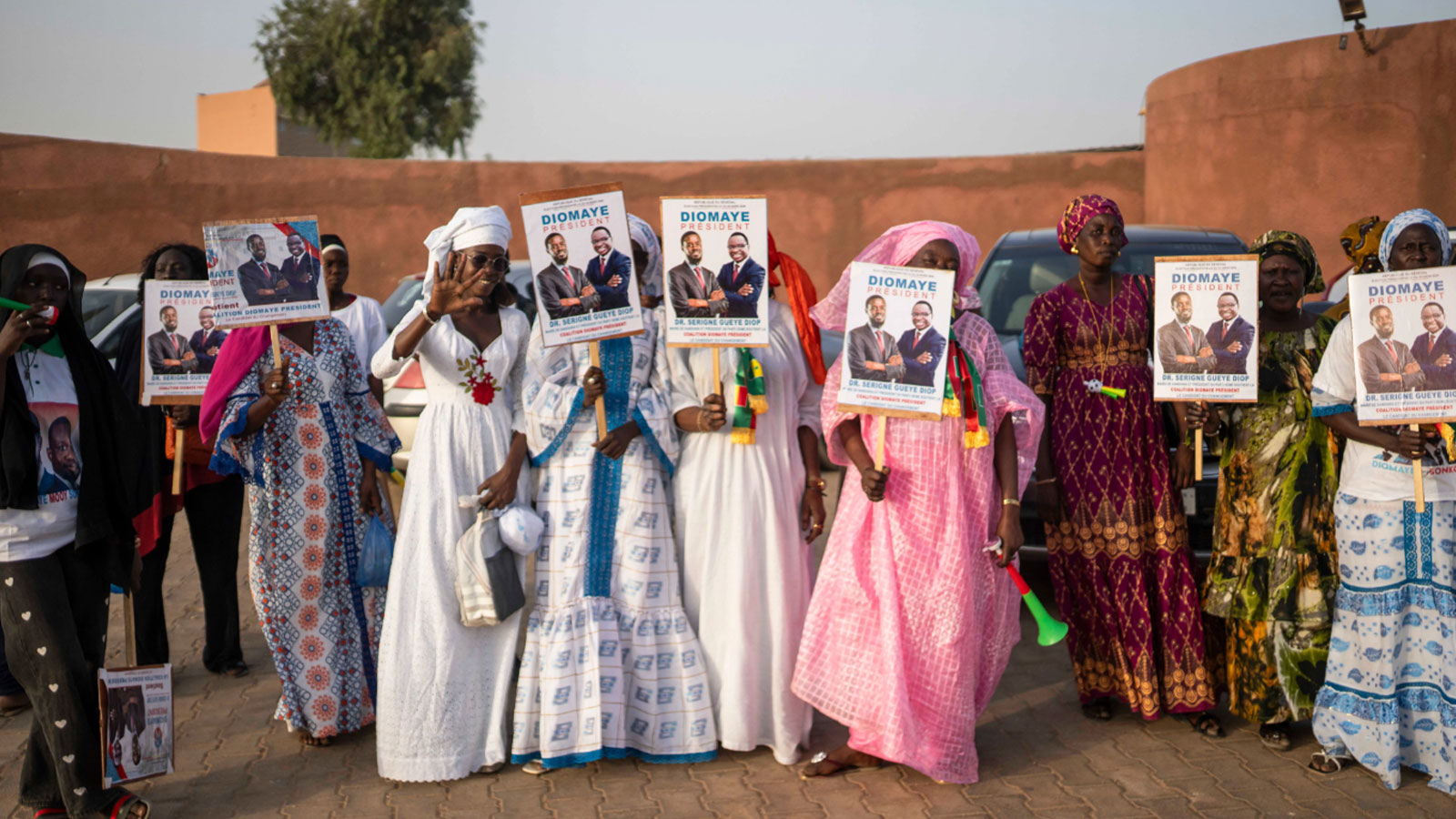The mention of “ruptures” brings back the same arguments that were used against independence. This is about re-enchanting the country for the future. The Senegalese have been waiting for 60 years.
On April 2, 2024, viewers around the world (interested in Africa) discovered with curiosity and sympathy the brand-new young President of the Republic of Senegal, a political prisoner just ten days before. Elected with an impressive and undisputed margin of 54% in the first round on the promise of an era of ruptures and progress through a lightning-fast electoral campaign! Moreover, the party “African Patriots of Senegal for Work, Ethics, and Brotherhood” PASTEF, barely 10 years old, emerging from a middle class resistant to colonial order, graces us with a pair of leaders, each as legitimate as the other, for the price of one. Two long-time companions. A friend congratulated me: “You have begun writing a beautiful page in the continent’s political history. Now, you must go all the way.”
While PASTEF cannot make unshakeable promises regarding all envisioned outcomes, it can and must solemnly commit to working with determination, passion, and honesty. Our unwavering commitment to transparency, solidarity, and humility is the foundation of our relationship with the Senegalese people and the international community. We will strive to achieve our ambitious goals, and we will not betray the trust placed in us.
Managing Expectations
However, it would be misleading to make the Senegalese believe that Bassirou Diomaye Faye and his government, led by Ousmane Sonko, will be able to solve all our problems. We must remember that a problem-free society is a dead society, and no one wishes for the death of Senegal (or Africa). There will always be challenges to overcome, especially since the legacy is weighty and will unveil unpleasant surprises and other misdeeds over time.
In Senegal, the projects are of such magnitude that it will take time, deep collective thinking, evaluations, rigorous planning, and unyielding determination to get the transformative ambition (the PASTEF project) on track. This will require transcending obstacles, sabotage, threats, disinformation, betrayals, and passive resistance.
The question is which problems the new regime will tackle and whether it can address them. The “PASTEF project” cannot be tackled all at once except at the level of public policies and general directions.
As Frantz Fanon rightly said, each generation must identify the key challenges of its era and meet them (not just identify them). The response begins with flagship initiatives that will make an impression and set the country on a dynamic path of change where imagination becomes a source of inspiration.
Furthermore, not all Senegalese can be asked to be patient. Some are more impatient, and rightfully so. They have been waiting for 60 years, and their rulers have made unkept promises for 60 years. Many have resigned themselves to the ineptitude of successive regimes. They continue to live in poverty, precarity, insecurity, and fear. They live (?) deprived of hope.

Cheering Bassirou Diomaye Faye’s Victory
Urgent Reforms
These populations cannot participate in and enjoy the country’s national development effort. How can their conditions be rapidly improved?
From now on, it would be wise to take significant initiatives:
– first, to meet some of the immediate expectations of the most destitute, the most vulnerable, and for peace in Casamance;
– then, to launch a broad public debate inclusive of reforms in the key sectors of production, education, and justice from a perspective of sovereignty and the well-being of the populations;
– We must not forget our commitment to Africa, which must be reaffirmed through concrete initiatives right from the start of the term.
Here is a proposal of 10 key measures (identified through a cross-reading of the PASTEF project) that could be entrusted to multidisciplinary and multi-sector volunteer commissions with a tight timeline. In patriotic support to the official departments in charge.
- Water, Electricity, and Internet for all everywhere at affordable prices;
- Evaluation of the national strategy to combat violence against women and its implementation;
- Peace in Casamance and pilot decentralization (regional development hub);
- Roadmap for a national currency;
- Roadmap for modernizing the popular economic sector (so-called “informal”);
- Roadmap for modernizing the daaras (sprawling Islamic schools) and for eliminating all temporary shelters;
- Truth and Justice Commission and justice and prisons reform;
- Evaluation and continuation of land reform;
- Overhaul of the Economic Commission of West African States (ECOWAS);
- African initiative on international migrations;
He are a few comments that support this choice:
Just imagine the smile of a child in a remote village who sees street lighting for the first time in their life and whose parents can finally afford a refrigerator. It changes life. Instantly. Or that little girl who can grow up serenely in the outskirts of Dakar without fear of undergoing genital mutilation or being forced into marriage. Or that family of “refugees” who can finally return to their village in Casamance without risking stepping on a landmine or encountering armed men, whether in uniform or not.
A Call for Decolonization
“Change life. Here and now” was the promise (not kept) of the French left under François Mitterrand. We? We can. I would even say we must. We must plan for packages from a national perspective and make service providers work in synergy. (1) (2) and (3)
The mode of production, the currency, and the national education are legacies of “colony Senegal” that have remained practically intact with their popular accessories.
The mention of “ruptures” brings back the same arguments that were used against (I emphasize against!) independence:
– “Beware of the ‘adventure’.”
– “We must keep our ‘friendship’ with France.”
– “Stability” must be prioritized over all other considerations!”… including freedom? and the transformation of the legacy?
The bearers of this argument are in urgent need of intellectual stripping. They hold us back. And, of course, colonial immobilism suits them while it penalizes the majority who labor. Only a strategy of resolute disconnection will allow us to reorient our energies and resources and work toward meeting our fellow citizens’ existential needs, guaranteeing their public freedoms. Unfinished decolonization remains a paralyzing obstacle to constructing a sovereign, prosperous, and just Senegal. We have the solutions. These reforms are necessary for the emergence, at last, of sovereign citizens. (4) (5) and (6)
As for Macky Sall, he wants to leave us with a history book of Senegal from which key pages have been purged. That is out of the question. These are the pages where he reveals himself, with his accomplices, as the embodiment of misgovernance, the looting of public goods, and police violence that has resulted in extrajudicial executions, enforced disappearances, acts of torture, and arbitrary deprivation of liberty. And now, as he leaves the stage, he decrees, through a scurrilous law, pardon and reconciliation in place of the victims and social actors. He roots impunity in our judicial history.
NO! Only a Truth and Justice Commission will allow us to fully illuminate these painful episodes (and previous ones?) but also to understand why our institutions have failed, how this has translated across the entire social body, and what consequences it may have. The information, analysis, conclusions, and recommendations of such a commission will be an essential contribution to the announced reform of justice (and I hope of prisons) by writing the true history of this period. In addition to doing justice to all victims and their families and punishing the guilty.
The reform must strive to decolonize justice and allow the people to recognize themselves in their institutions. So, a sovereign, patriotic, and upright justice. Truth and Justice? It’s not a political option. It’s an obligation for any regime that adheres to the rule of law and unites in empathy with its people. (7)
Moreover, Macky Sall had commissioned a report on land reform, but (as usual) his lack of political courage and inconsistency led him to stifle said report. While we had elected him to anticipate and resolve our society’s contradictions, he instead pursued kickbacks (through overpriced infrastructure contracts,) political plots as petty as each other, and economic choices stemming from disheartening incompetence.

New Leadership Duo: Pres. Bassirou D. Faye and Ousmane Sonko
Challenging Neoliberal Globalization
In 25 years, Senegal will reach a population of 35 million. This single data point should encourage and mobilize any responsible government to reflect, engage in informed dialogue, and establish a timetable for implementing land reform aimed at sovereignty, prosperity, and justice. (8)
Finally, Bassirou Diomaye Faye, Ousmane Sonko, and PASTEF have a rendezvous with Africa. Patriots, progressives, and pan-Africanists from Africa and its diasporas await the emergence of a new African leadership from an ascending and committed generation.
Two initiatives our new government could undertake:
- To overhaul the Economic Commission of West African States (ECOWAS.)
The decision of the States of the Sahel Alliance (AES) to withdraw from ECOWAS is one of the consequences of the multiple crises that have undermined the community organization for over a decade. This decision to withdraw, which confirms the failure of ECOWAS, triggered a panic reaction within the organization, which wants a “negotiated arrangement.” It is up to Senegal to take the initiative to lift sanctions and embargoes immediately and without conditions and to develop a plan to stop foreign interference in the functioning and decision-making mechanisms of the organization.
In the medium term, a system reform of ECOWAS is imperative after 50 years of existence. This should be done on the basis of inclusive consultations in all the countries of the region: researchers and research institutions, civil societies and popular organizations, political parties, and member states aiming to make effective the commitment to transform the organization into an ECOWAS of the peoples and to make it capable of responding to the challenges of the 21st century. The time has come for West Africans to commit to the transformation of our common organization. The most suitable and legitimate actor to carry this initiative will be Senegal.
- For an African re-reading of agreements with Europe on the circulation of capital, goods, and people.
These circulations are discussed and negotiated separately while they are inextricably linked in the construction of neoliberal globalization. How can one give carte blanche to the freedom of movement of capital and goods without freeing the movement of labor? How long will we maintain this dynamic of unequal development? Africa must seize this issue and press Europe to tackle it. It’s about preserving the thousands of lives swallowed by the oceans and deserts of the world.
It calls for Senegal to lead the debate within African regional organizations. (9) and (10)
Ultimately, it’s about the country’s “re-enchantment” to assault the future. We have the needed youth in Africa today. The intellectual community must continue to mobilize strongly with proposals to prevent the new government from being imprisoned by a bureaucracy monopolizing information, analysis, and advice. Ministers (Cabinet Secretaries) must convert and become activists, not activists of PASTEF, but activists for the cause of a sovereign, prosperous, and just Senegal in a progressive Africa. The future belongs to us.
Featured image: Supporters of Faye attend a final campaign rally in Mbour, Senegal, before the presidential election (Mosa’ab Elshamy/AP)















